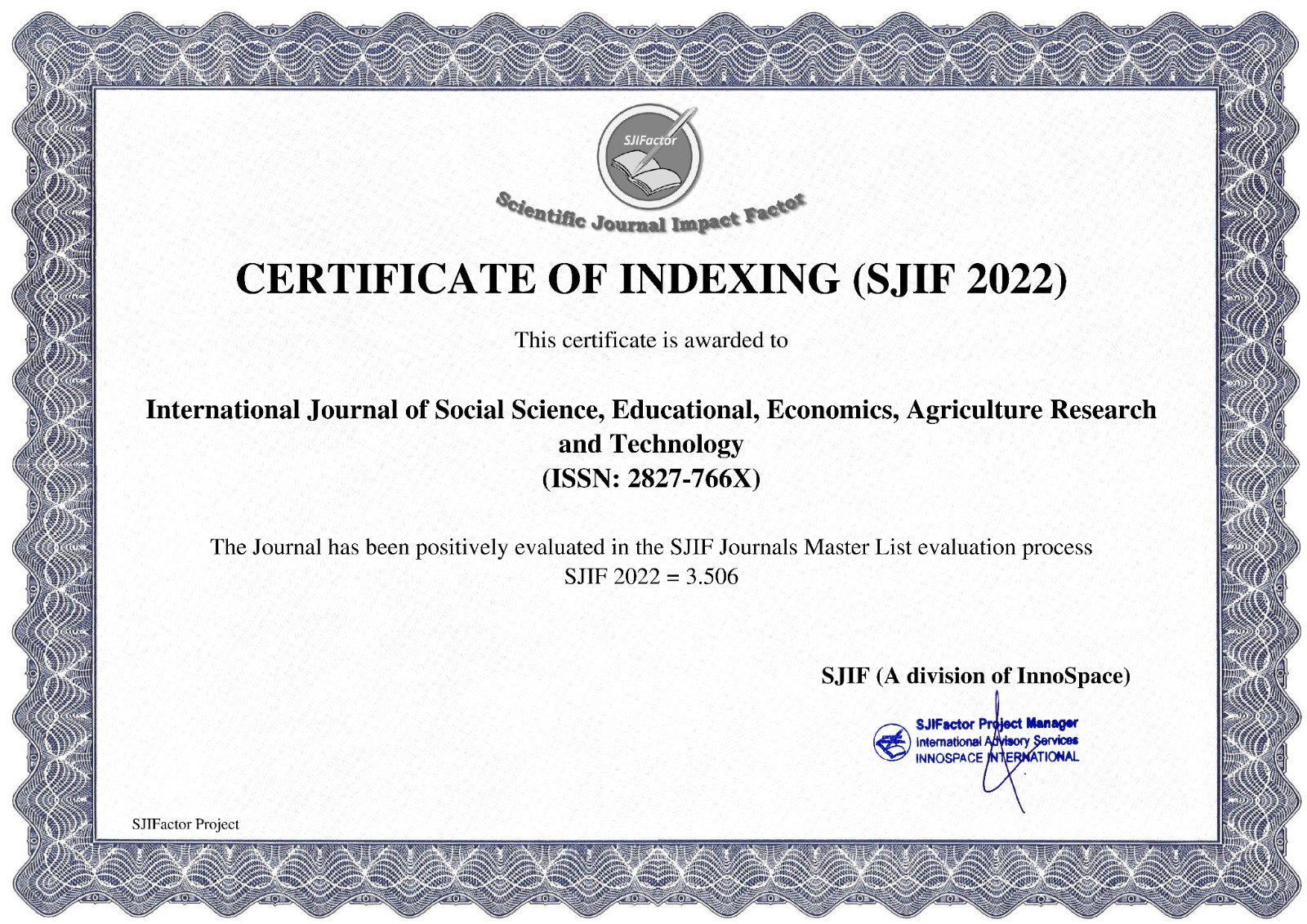BUILDING A SPIRITUAL WORK CULTURE BY READING THE QUR'AN BEFORE PATI ISLAMIC HOSPITAL HANDOVER AT THE NURSE STATION
Main Article Content
Sofiati
Feri Catur Yuliani
Yeni Rusyani
Akbar Amin Abdullah
This study discusses the application of recitation therapy as an effective mental health healing method to reduce stress and anxiety and strengthen spiritual connection with Allah SWT. However, at the Pati Islamic Hospital, recitation is not recommended.
This Qur'an has not yet become a routine habit, so there needs to be systematic implementation so that this therapy can improve the emotional well-being of health workers.
Building an Islamic work culture by starting activities by remembering Allah SWT, instilling a sense of discipline and sincerity, and regularly reciting holy verses to create a harmonious work atmosphere and also improve work ethic.
Qualitative action research approach with the following stages: problem identification, implementation observation, and impact evaluation through interviews and reflection with health workers.
Tilawah therapy has a positive impact on the emotional and spiritual well-being of health workers, creates a calm working atmosphere, strengthens Islamic work culture (sincerity, responsibility, empathy), reduces stress, increases focus, strengthens relationships between staff, and supports humanistic and quality health services.
The implementation of tilawah therapy at the RSI Pati Nurse Station effectively improves emotional balance, mental calm, work ethic, and the quality of healthcare services. This therapy also fosters a harmonious, religious, and spiritual Islamic work culture, creating a humanistic and meaningful work environment.
Addimasyqi, MR, Tamam, AM, & Alim, A. (2024). Development of Tajweed teaching materials with flipbooks in Madrasah Tsanawiyah. 17(2), 455–472.
https://ejournal.uika-bogor.ac.id/index.php/TAWAZUN/article/view/17055/5608
Arifin, MZ (2022). Healing Spiritual Problems of Patients in Hospitals Through a Therapeutic Spiritual Communication Approach Based on the Qur'an. AL QUDS: Journal of Qur'an and Hadith Studies, 6(2), 925.
https://journal.iaincurup.ac.id/index.php/alquds/article/view/4248/pdf
Asmuki, A., & Taufiq, I. (2021). The Meaning of Tilawah, Tazkiyah, Ta'Lim Al-Kitab Wa Al-Hikmah and Its Implementation in Learning: A Study of Surah Al-Jumuah Verse 2. Edupedia: Journal of Islamic Education and Pedagogy Studies, 5(2), 57–66.
https://journal.ibrahimy.ac.id/index.php/edupedia/article/view/1205/935
Eka Suhartini & Nur Anisa. (2017). THE EFFECT OF EMOTIONAL INTELLIGENCE AND SPIRITUAL INTELLIGENCE ON THE PERFORMANCE OF NURSES AT LABUANG BAJI REGIONAL HOSPITAL, MAKASSAR. MINDS JOURNAL OF IDEAS AND INSPIRATION MANAGEMENT, 4(1), 1–18.
https://journal.uin-alauddin.ac.id/index.php/minds/article/view/3135/2971
Erika A'idatun Nahar, & Ahmad Saefudin. (2024). The Role of Islamic Education in Fostering Mental Health from a Qur'anic Perspective. PROGRESSA: Journal of Islamic Religious Instruction, 8(1), 1–13.
https://jurnal.stitradenwijaya.ac.id/index.php/pgr/article/view/484/162
Frawina, M. (2024). Etiquette of Reading the Quran and the Influence of the Quran in the Formation of Muslim Character. 2(2), 508–515.
https://jurnalistiqomah.org/index.php/merdeka/article/view/2982
Ilyas, I. (2019). The Meaning of the Muqatta'ah Letters in the Qur'an. Diwan: Journal of Arabic Language and Literature, 5(2), 192.
https://journal3.uin-alauddin.ac.id/index.php/diwan/article/view/10374/pdf
Juniar, NS, & Putri, N. (2023). The Effect of Reading the Qur'an on Mental Health. Jurnal Religion: Jurnal Agama, Sosial, dan Budaya, 1(6), 830–839.
https://maryamsejahtera.com/index.php/Religion/index
Leu, B. (2020). Learning Tahsin Tilawah Al-Qur'an for Beginner Readers. Ilmuna: Journal of Islamic Religious Education Studies, 2(2), 134–154.
https://jurnal.stituwjombang.ac.id/index.php/ilmuna/article/view/159/116
Madzkur, ZA (2015). Harakat and Punctuation of the Indonesian Standard Al-Qur'an Mushaf from the Perspective of Dabt Science. Suhuf, 7(1), 1–23.
https://jurnalsuhuf.kemenag.go.id/suhuf/article/view/20/20
Misbah, M. (2019). Living Qur'an in Health Institutions: The Phenomenon of "The Movement to Read the Qur'an Before Work." Hermeneutics: Journal of Qur'anic Science and Interpretation, 13(1),
–130. https://journal.iainkudus.ac.id/index.php/Hermeneutik/article/view/5590/3526
Mugiyono, & Sutan Aldi Ramadan. (2024). Understanding Tajweed Science to Improve the Ability to Read the Qur'an in Tartil in Class X Students of SMKN 16 Jakarta. Al-Ubudiyah: Journal of Islamic Education and Studies, 5(1), 58–74.
https://jurnal.staiddimakassar.ac.id/index.php/aujpsi/article/view/265/173
Mujahidin, E., Daudin, A., Nurkholis, II, & Ismail, W. (2020). Tahsin Al-Qur'an for adults from an Islamic perspective. Journal of Non-Formal Education, 14(1), 26–31.
https://ejournal.uika-bogor.ac.id/index.php/JPLS/article/view/3216/1930
Musa Dwi Adi Saputra, & Nadlif, A. (2023). Problems of Applying Tajweed Science in Reading the Qur'an for Students of SDI Al Aziziyah. Scientific Journal of Muhammadiyah University of Buton, Vol. 9 No., 671–680.
https://jurnal-umbuton.ac.id/index.php/Pencerah/article/view/3591
Nadia Aryani Mustar, Samsualam, & Sudarman. (2023). Implementation of Islamic Spiritual Caring by Nurses on Patient Satisfaction. Window of Nursing Journal, 5(1), 1–8.
https://jurnal.fkm.umi.ac.id/index.php/won/article/view/673/653
Nurasih, W., Amalia, FR, Muthohar, A., Mada, UG, Islam, U., Prof, N., Syaifuddin, KH, Islam, U., Prof, N., & Syaifuddin, KH (2023). LIVING QUR'AN IN PURWOKERTO ISLAMIC HOSPITAL (Implementation of Surah Ash-Syu'ara Verse 80 in the Services of the Islamic Spiritual Guidance Division). Journal of Al-Qur'an Studies and Tafsir, 01 (01), 29–44. https://e-journal.lp2m.uinjambi.ac.id/ojp/index.php/qudwah/article/view/1851/893
Oktarina, M. (2020). Benefits of Studying and Reading the Koran with Tajwid. Serambi Tarbawi, 8(2), 147–162. https://ojs.serambimekkah.ac.id/tarbawi/article/view/5072/3726
Purnamasari, E., Yoyoh, I., & Anjani. (2019). Factors related to the spiritual health of Islamic nurses in the inpatient ward of Tangerang Regency Hospital. Indonesian Journal of Nursing Science, 2(2), 114–130. http://jurnal.umt.ac.id/index.php/jik/index
Qurani, N. (2024). Reviving the Manners of Reading the Quran: Ethical Perspectives and Quranic Values. 2(2), 450–461. https://jurnalistiqomah.org/index.php/merdeka/article/view/2966
Rahman, MT, Syhahirah, N., & Azzahra, PAN (2023). The Influence of Reading and Listening to the Qur'an. Journal of Islamic Education, 1, 669–676.
https://maryamsejahtera.com/index.php/Education/article/view/712/616
Sri Rezqi Pebianti, Wulandari, EH (2016). THE QUR'AN AS A GUIDE TO LIFE IN RESPONDING TO VERSE 183 OF SURAH AL-BAQARAH IN MODERN LIFE. Indonesian Journal of Religious Studies and Multiculturalism, 7693, 1–23.
https://jurnal.anfa.co.id/index.php/relinesia/article/view/1993/1843
Syahrir, MI (2021). Al-Qur'an Memorizers' Etiquette Curriculum from Al-Ajurri's Perspective. Tawazun: Journal of Islamic Education, 14(3), 195.
https://ejournal.uika-bogor.ac.id/index.php/TAWAZUN/article/view/4514/3233
Talibo, N.A., Kurniati, T., & Widakdo, G. (2019). Application of Islamic Behavioral Forms to Nurses' Ability to Implement Islamic Nursing Care in Inpatient Wards. Journal of Telenursing (JOTING), 1(2), 324–333.
https://journal.ipm2kpe.or.id/index.php/JOTING/article/view/966/563
Tedja, P., & Tanuwidjaja, G. (2015). Effectiveness of Room and Nurse Station Design in Patient Pavilion.pdf. SENATEK, 938–945.






















